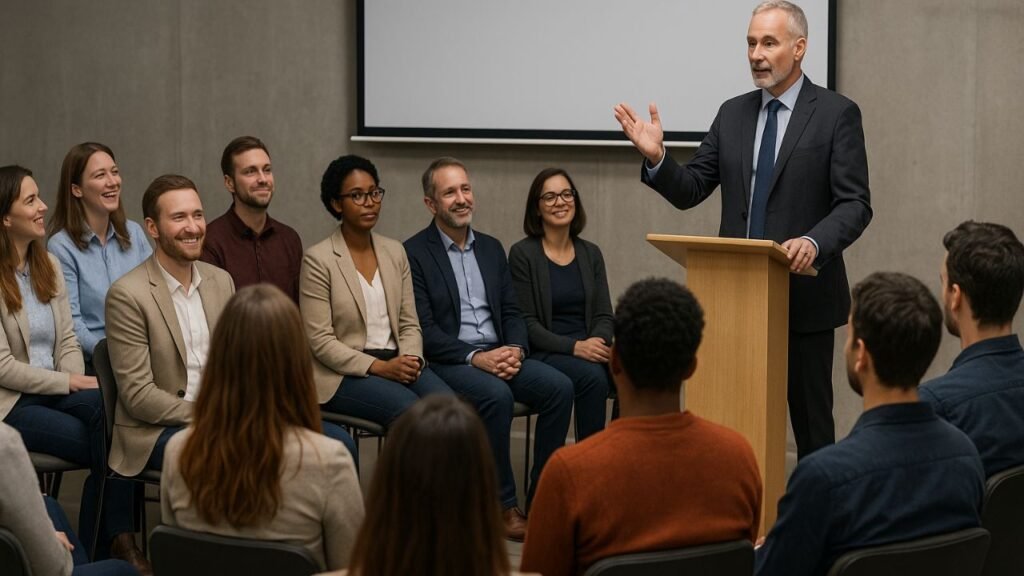Webinars Knowledge –Public lectures and free webinars on knowledge ethics, science, and reason in the 21st century have emerged as vital platforms for democratizing learning and fostering critical dialogue. In today’s interconnected world, these events serve as bridges that connect experts, students, and the general public in meaningful discussions. The accessibility of webinars allows participants from diverse cultural and academic backgrounds to engage with themes that challenge conventional thought and open up new pathways for ethical inquiry. By focusing on subjects like scientific accountability, the role of reason in decision-making, and ethical dilemmas in knowledge creation, these initiatives not only spread awareness but also inspire collective responsibility. In a time where misinformation and polarized thinking are prevalent, such forums encourage rational discourse, foster inclusivity, and empower participants to think critically about their role in shaping society. Ultimately, they provide an open stage where reason and ethics intersect with real-world scientific practices.

 Peer-Reviewed Journals, Monographs, and Whitepapers Published by the Institute of Epistemics
Peer-Reviewed Journals, Monographs, and Whitepapers Published by the Institute of Epistemics
The Role of Public Lectures in Knowledge Dissemination
Public lectures play an essential role in making complex academic ideas accessible to wider audiences. Traditionally conducted in universities or cultural centers, they have now expanded into online platforms, allowing global participation. Through these lectures, scholars can present ideas in simplified formats without compromising intellectual depth, thus fostering curiosity among laypersons. For example, a lecture on the ethics of artificial intelligence may explain difficult concepts like algorithmic bias and data privacy in relatable terms, enabling individuals without technical backgrounds to understand their societal implications. Furthermore, public lectures often foster dialogue, where attendees can question and interact with experts, thereby creating a collaborative space of knowledge. This dynamic exchange is crucial in an age where information overload can confuse rather than enlighten. By focusing on clarity, engagement, and accessibility, public lectures democratize education, empowering communities to apply reason and ethics in real-world scenarios.
 Epistemology for the Modern Mind: Online & Offline Certificate Courses Offered by the Institute
Epistemology for the Modern Mind: Online & Offline Certificate Courses Offered by the Institute
Free Webinars as Tools of Global Engagement
Free webinars, particularly since the digital revolution, have transformed into powerful tools of global knowledge exchange. Unlike traditional lectures that may be limited by geography or institutional access, webinars break barriers by enabling participants from multiple countries to join in real-time. They promote inclusivity by allowing individuals who may lack financial resources to benefit from high-quality content without paying fees. Topics such as climate ethics, scientific transparency, or rational policymaking can now reach remote communities, sparking discussions that transcend borders. Another advantage of webinars lies in their interactive format—live polls, breakout rooms, and Q&A sessions encourage participants to actively engage with the subject matter. They also provide recorded sessions, ensuring continuous learning beyond the live event. By offering a combination of accessibility, affordability, and interactivity, webinars have become an indispensable medium for nurturing global communities committed to science, ethics, and reason.
Ethics and Science in the 21st Century
The 21st century has brought unique ethical challenges in science and knowledge creation, ranging from genetic engineering and climate change research to artificial intelligence and digital privacy. Public lectures and webinars serve as arenas where these debates are unpacked with rationality and inclusivity. Ethics is no longer confined to philosophical discussion; it is a practical necessity for guiding how science impacts daily life. For example, discussions on biotechnology may address not just scientific breakthroughs but also their implications for human rights, equality, and ecological balance. Likewise, conversations on social media algorithms highlight how reason must guide the use of data for the collective good. By weaving together philosophy, science, and public reasoning, these platforms equip individuals to evaluate progress critically, ensuring that human values remain at the center of innovation.
Building a Culture of Reason Through Dialogue
At their core, public lectures and webinars cultivate a culture of reason by encouraging open dialogue and mutual respect. Rational debate thrives when people from different backgrounds come together to share perspectives and challenge assumptions. In societies often divided by ideology or misinformation, these events stand as reminders that progress requires evidence-based thinking and ethical reflection. They also nurture future leaders by exposing young minds to diverse ideas and fostering critical analysis skills. A webinar on climate justice, for instance, may inspire youth to advocate for policies rooted in fairness and sustainability. Similarly, lectures on scientific responsibility remind policymakers and professionals to align their decisions with ethical standards. Over time, these repeated engagements build intellectual communities grounded in curiosity, empathy, and shared responsibility. In this way, lectures and webinars on knowledge ethics, science, and reason contribute not only to academic discourse but also to the larger project of nurturing global citizenship.


